AUDUBON CHRISTMAS BIRD COUNT 2023
by Pete Johnson, Acting President
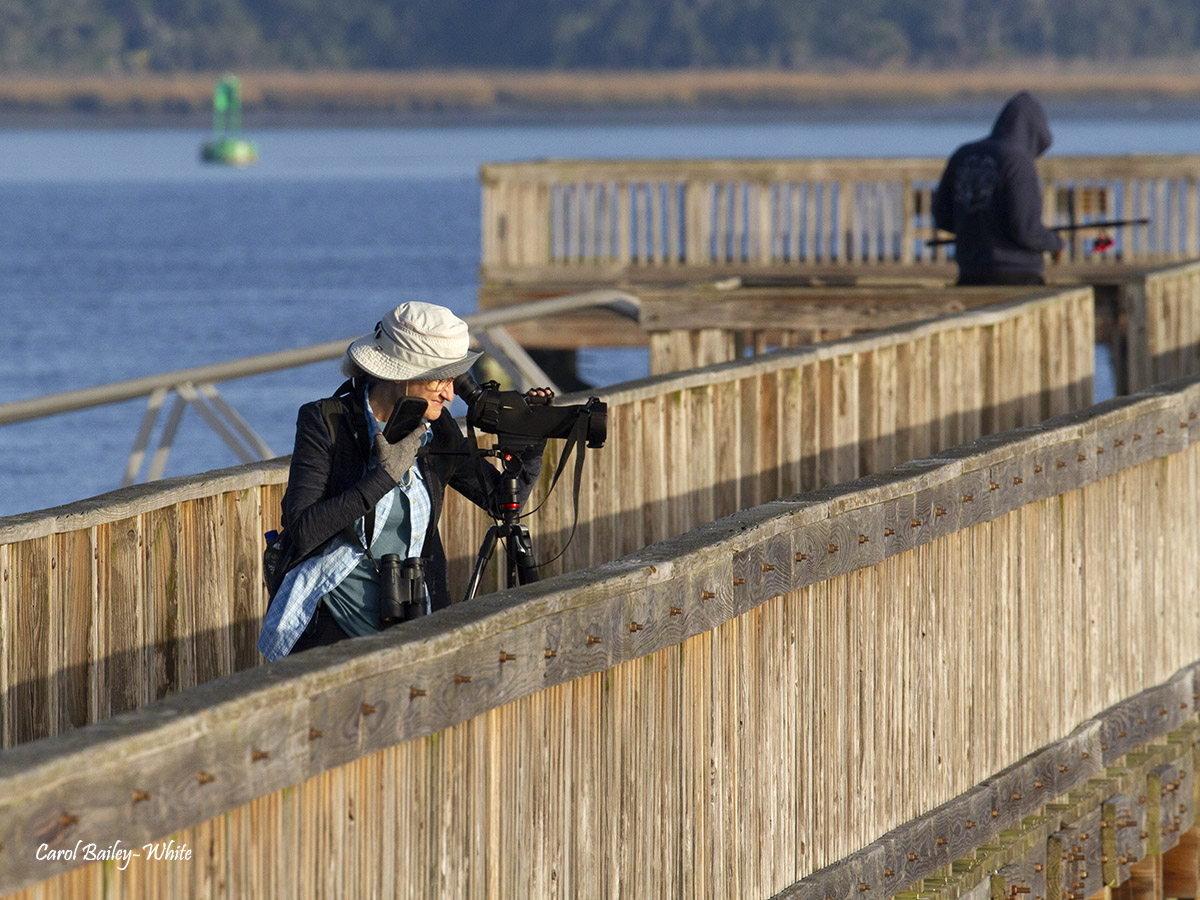 This year’s Duval County Christmas Bird Count (CBC) will mark 74 years that Duval Audubon has been conducting CBCs in Jacksonville! This is amazing considering it’s an all-volunteer, citizen science count. I’d love to know more about the history of the people involved in our count here in Duval, but there’s not much record of the counts other than the data itself and CBC results summary publications. However, the data is the most important aspect of the CBC. This year’s Duval County Christmas Bird Count (CBC) will mark 74 years that Duval Audubon has been conducting CBCs in Jacksonville! This is amazing considering it’s an all-volunteer, citizen science count. I’d love to know more about the history of the people involved in our count here in Duval, but there’s not much record of the counts other than the data itself and CBC results summary publications. However, the data is the most important aspect of the CBC.
The CBC is one of several datasets used to develop the State of the Birds report, which is produced by a consortium of government agencies, private organizations, and bird initiatives led by North American Bird Conservation Initiative (NABCI). Last published in 2022, this report documents bird population trends in North America. This is just one of the many uses of the CBC data for scientific research and bird conservation.
I started participating in Duval CBCs shortly after joining Duval Audubon around 2000. Back then the CBC coordinator was Peggy Powell. She and her sister Mary Davidson had been teaming up to organize and host the Duval CBC for a number of years at that point. Peggy and Mary would organize and coordinate the count and Mary would host the count tally dinner at her house in Mandarin. They were a great team. Peggy and Mary recruited many of the top birders from around the state to participate. The culmination of the day was to meet at Mary’s house where there was a warm fireplace waiting for cold, weary birders after a long day in the field.
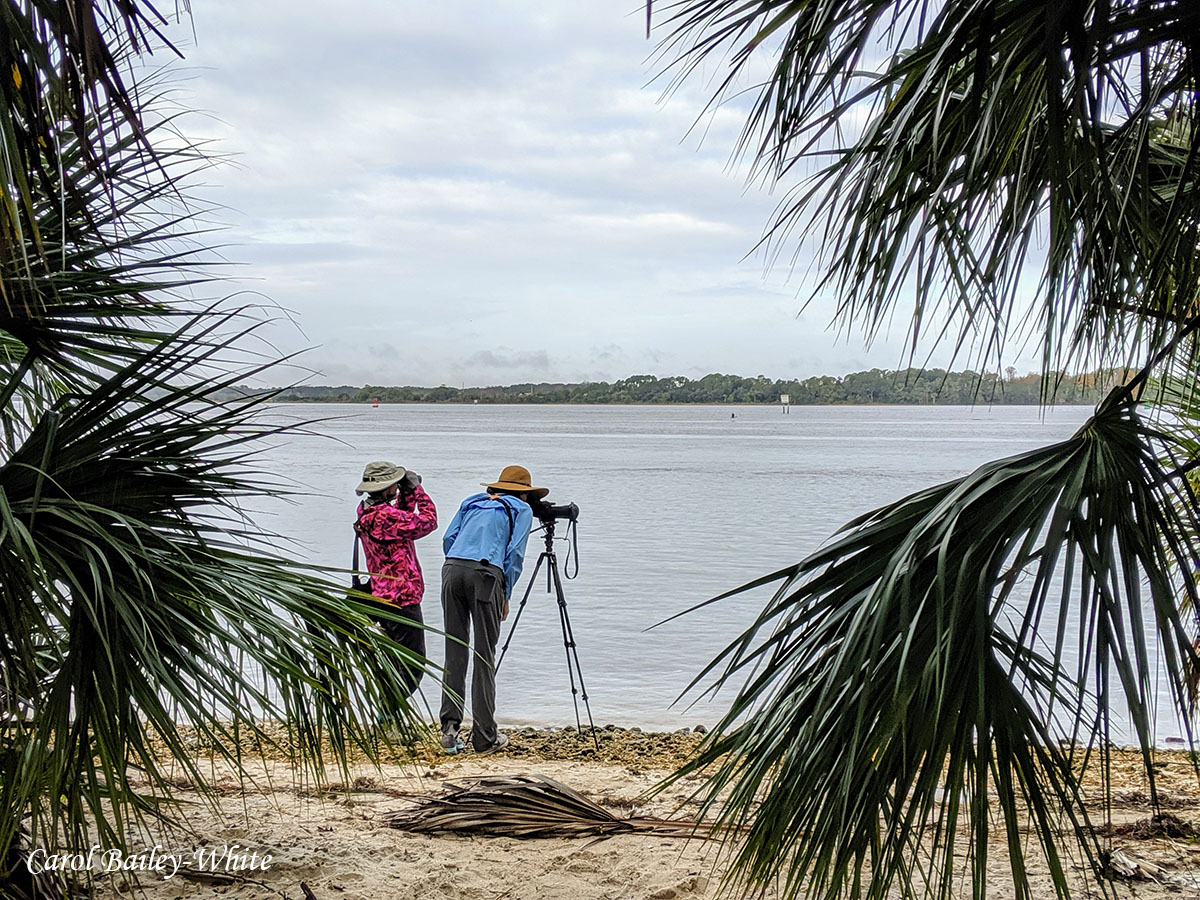 In later years, we’ve moved away from having a gathering to tally the count at the end of the day. The practicality and logistics of this approach seem a bit much in the age of electronic communication and eBird Trip Reports. The data is still compiled and submitted by one person to ensure consistency and quality. Last year it was compiled by Jeff Graham. This year it will be compiled by Anne Turner, a long time participant and compiler of previous CBCs. She will be assisted by Jessica Dyszel. In later years, we’ve moved away from having a gathering to tally the count at the end of the day. The practicality and logistics of this approach seem a bit much in the age of electronic communication and eBird Trip Reports. The data is still compiled and submitted by one person to ensure consistency and quality. Last year it was compiled by Jeff Graham. This year it will be compiled by Anne Turner, a long time participant and compiler of previous CBCs. She will be assisted by Jessica Dyszel.
If you are interested in participating on a count team in this year's Duval County CBC on December 30, 2023, please contact Anne Turner at sungrebe86@yahoo.com, Jessica Dyszel at jessica.dyszel@gmail.com, and myself at petejohnson71@gmail.com. Please note that this is not a field trip, but a serious bird count. Participation is contingent upon need by the ten territory leaders and teams. All efforts will be made to accommodate anyone who wants to contribute their time, expertise and enthusiasm for birding! Thanks, and Happy Holidays!!
NOTE: Other CBC counts that will be taking place in our area include:
LIGHTS OUT NORTHEAST FLORIDA: THREE YEARS AND COUNTING
by Carol Bailey-White, LONF Volunteer Coordinator
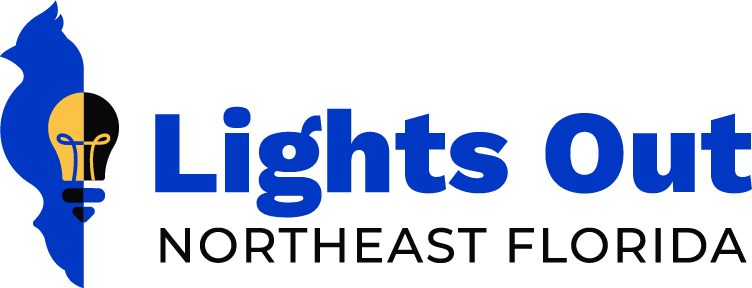 Last month, Lights Out Northeast Florida (LONF) completed three full years of collecting data about birds killed or injured by window or building collisions in downtown Jacksonville during the spring and fall migration seasons. LONF, a partnership between Duval Audubon Society, the Jacksonville Zoo and Gardens, and St. Johns Regional Audubon, relies on dedicated volunteers who walk one of five routes in the downtown area each week during the migration season, looking for avian victims of collisions. Dead birds are cataloged and collected, and stunned birds are observed to see if they can recover enough to be released in a safer area. Any that have not recovered are taken to The Ark Wildlife Rescue in St. Augustine for rehab and (hopefully) eventual release back into the wild. Last month, Lights Out Northeast Florida (LONF) completed three full years of collecting data about birds killed or injured by window or building collisions in downtown Jacksonville during the spring and fall migration seasons. LONF, a partnership between Duval Audubon Society, the Jacksonville Zoo and Gardens, and St. Johns Regional Audubon, relies on dedicated volunteers who walk one of five routes in the downtown area each week during the migration season, looking for avian victims of collisions. Dead birds are cataloged and collected, and stunned birds are observed to see if they can recover enough to be released in a safer area. Any that have not recovered are taken to The Ark Wildlife Rescue in St. Augustine for rehab and (hopefully) eventual release back into the wild.
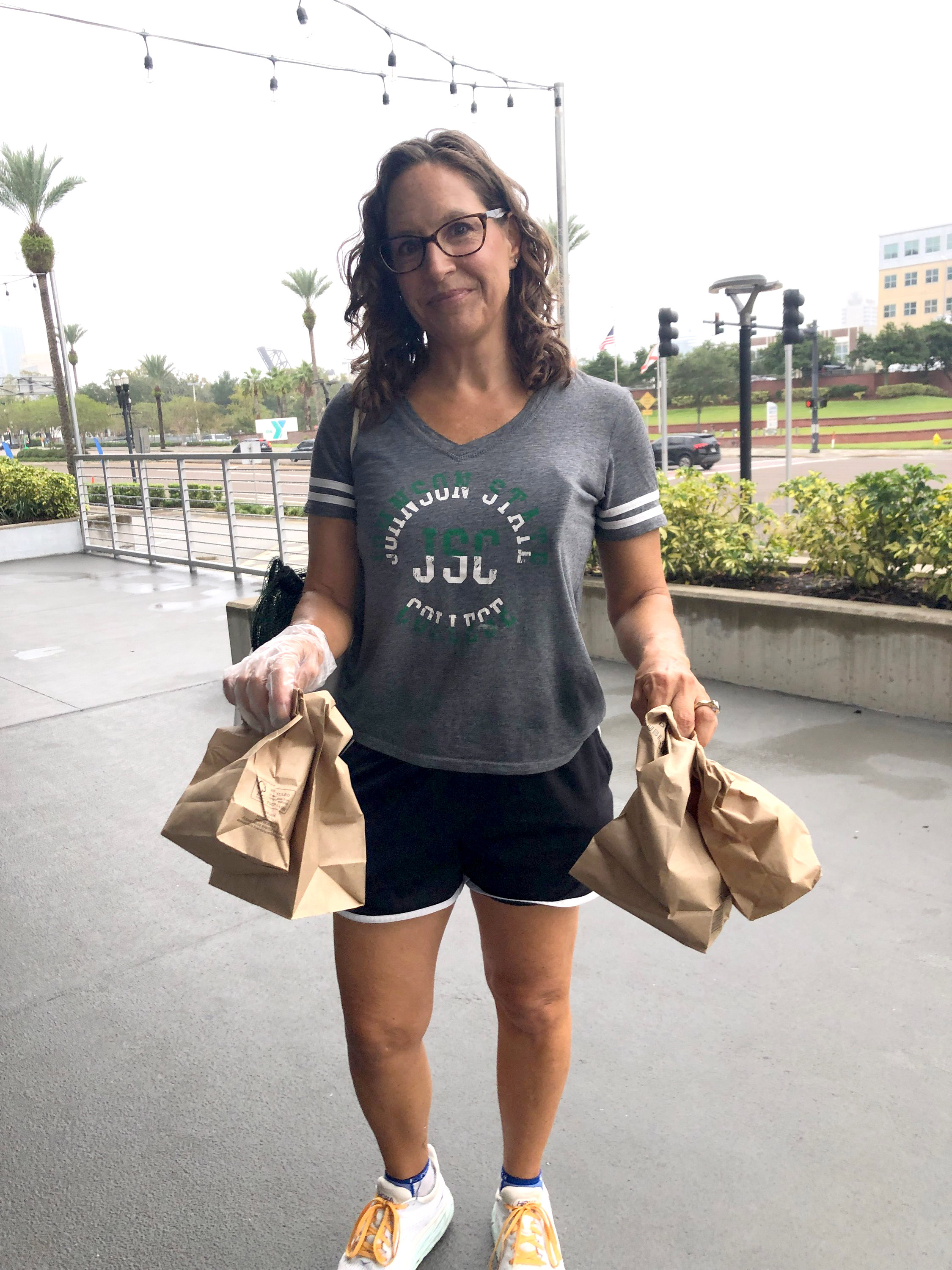 LONF is incredibly grateful to the 36 volunteers who donated more than 375 hours of their time to monitor bird strikes in downtown Jacksonville this fall. During the two months of monitoring (September 15 - November 15), they found 165 dead birds and 67 stunned birds, all victims of building or window strikes. This tally is comparable to the previous fall seasons, but sharply contrasting with the spring seasons, when many fewer avian collision victims were found. The main reason for the discrepancy is simply that in the fall, many more birds are migrating, since immature birds that were just hatched over the summer are traveling with the adult birds. In addition, immature birds that are migrating for the very first time are not experienced, resulting in far more collisions. So in the spring, only birds that have survived to adulthood travel northward to their breeding grounds. LONF is incredibly grateful to the 36 volunteers who donated more than 375 hours of their time to monitor bird strikes in downtown Jacksonville this fall. During the two months of monitoring (September 15 - November 15), they found 165 dead birds and 67 stunned birds, all victims of building or window strikes. This tally is comparable to the previous fall seasons, but sharply contrasting with the spring seasons, when many fewer avian collision victims were found. The main reason for the discrepancy is simply that in the fall, many more birds are migrating, since immature birds that were just hatched over the summer are traveling with the adult birds. In addition, immature birds that are migrating for the very first time are not experienced, resulting in far more collisions. So in the spring, only birds that have survived to adulthood travel northward to their breeding grounds.
The data we collected is being shared with downtown business and community leaders as well as local officials to highlight the need to make Jacksonville a more bird-friendly city. However, we always emphasize that this data does not represent the total number of avian victims of building or window collisions in Jacksonville, for several reasons. One factor is that it is impossible for the LONF volunteers to monitor every building in the downtown area every single day – there just aren’t enough volunteers for that. Plus, many of the buildings that are monitored have terraces, balconies, and other areas that aren’t accessible to the volunteers, so we know that the number of birds killed or injured by collisions with windows or buildings in the downtown area is actually greater than our data suggests.
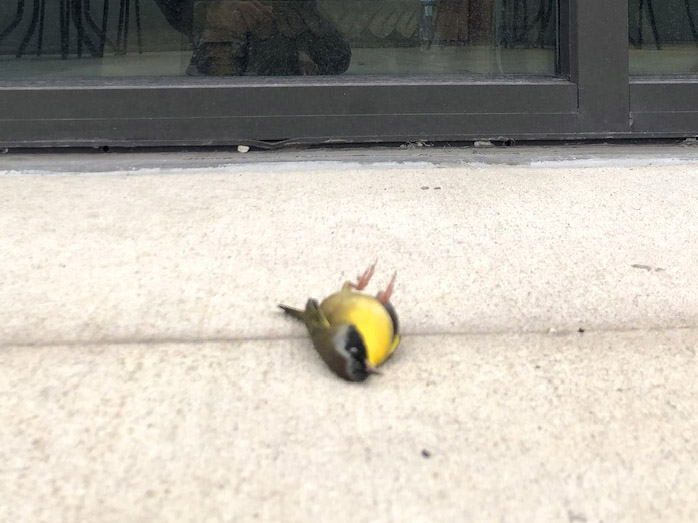 And of course, it’s not just the downtown area that presents a danger to migrating birds. Any reflective window, whether on a tall building or a private home, can be a death sentence for a bird. Birds cannot see glass, and often smack right into the reflection of the sky, thinking it’s the sky itself. We MUST do more to protect birds from these dangers. That’s why Lights Out Northeast Florida encourages everyone, businesses and homeowners alike, to take steps to prevent these tragic accidents. Here’s what you can do to make your home or business safer for migrating birds: And of course, it’s not just the downtown area that presents a danger to migrating birds. Any reflective window, whether on a tall building or a private home, can be a death sentence for a bird. Birds cannot see glass, and often smack right into the reflection of the sky, thinking it’s the sky itself. We MUST do more to protect birds from these dangers. That’s why Lights Out Northeast Florida encourages everyone, businesses and homeowners alike, to take steps to prevent these tragic accidents. Here’s what you can do to make your home or business safer for migrating birds:
- Turn off all unnecessary outdoor lights from 11 pm until 6 am during spring and fall migration seasons (March 15 – May 15 and September 15 - November 15). Migrating birds navigate by starlight, and bright lights at night can confuse them and draw them away from their normal migration path into brightly lit areas, where they can easily hit a window and perish.
- Install motion sensors on outdoor security lights so that they only come on when needed. (This will save on your electricity bill as well!)
- Treat windows to make them visible to birds. There are many solutions available for this, from low-cost temporary treatments to more permanent window applications. The important thing is that the treatment should be applied to the OUTSIDE of windows, and designs should be no more than 2 inches apart so that birds can see the windows and avoid them. You can find many more ways to make your windows bird-safe with this great guide from the American Bird Conservancy.
Thank you for caring about birds!
CROSBY SANCTUARY UPDATE: OCTOBER/NOVEMBER 2023
by Pete Johnson, Acting President and Sanctuary Director
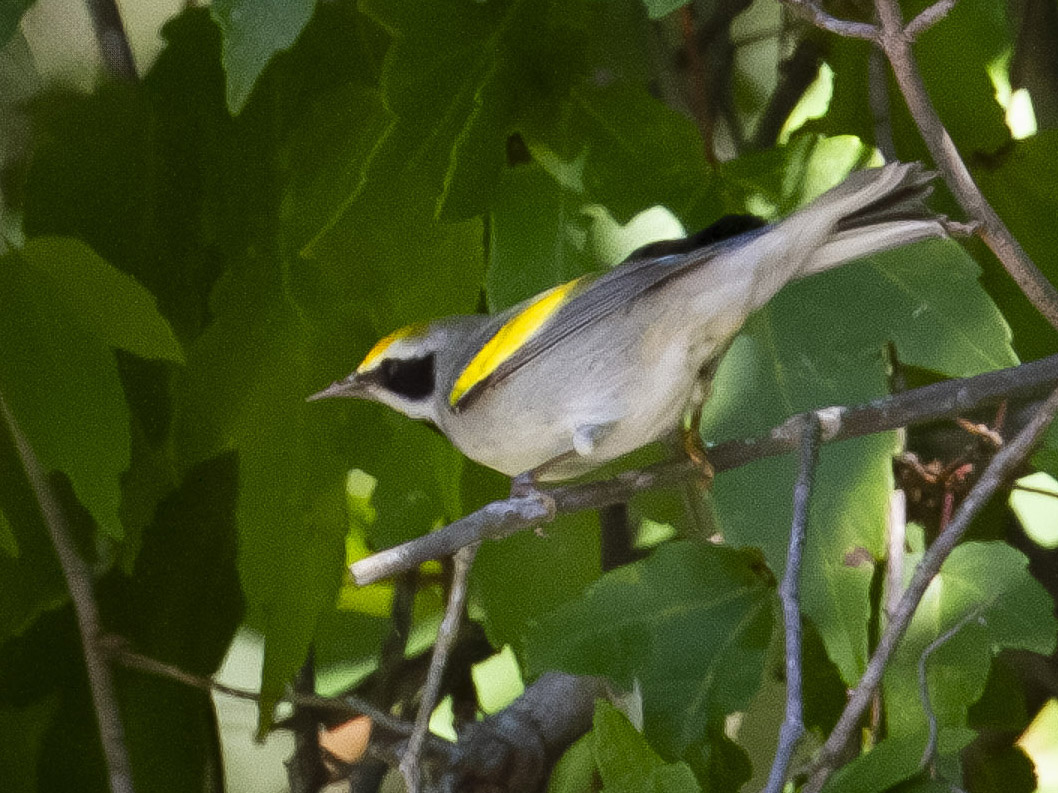 October and November were great months at our Crosby Sanctuary! Fall migration season continued to send good migrants our way. Among my favorites every year are the Eastern Phoebes and House Wrens, which both start showing up in early October. Yellow-bellied Sapsuckers and Northern Flickers start returning around this time as well. They’re like old friends returning every fall to signal the turn of the season. On October 21 we were treated to a sighting of a beautiful Golden-winged Warbler by Jessica Dyszel! October and November were great months at our Crosby Sanctuary! Fall migration season continued to send good migrants our way. Among my favorites every year are the Eastern Phoebes and House Wrens, which both start showing up in early October. Yellow-bellied Sapsuckers and Northern Flickers start returning around this time as well. They’re like old friends returning every fall to signal the turn of the season. On October 21 we were treated to a sighting of a beautiful Golden-winged Warbler by Jessica Dyszel!
During our work days and open house days we had our regular group of teens from Ridgeview High School’s Earth Club. They helped do maintenance on the native plant garden, clear debris from trails, clean & refill birdfeeders, check trail cameras, and more. Together with our adult/member volunteers we logged over 146 volunteer hours between 37 total volunteers in October and November! Thank you so much to all who participated!!
We also made Crosby Sanctuary a “project” on the iNaturalist platform and app. This allows you to see what plant and animal species have been recorded on iNaturalist within the boundaries of the sanctuary! We currently have more than 200 species recorded by 17 people at Crosby. This is a great start to our growing database of biodiversity observations documented at Crosby. Thanks to all who have contributed already!! To access this project simply select “Projects” in the iNaturalist menu, search “Crosby Sanctuary” and click on it.
Please come visit Crosby Sanctuary during our next workday and open house events on January 20 and 27, open from 8 AM until 12 PM. We will not be having our regular events in December due to the holidays and Christmas Bird Count.
AVIAN INFLUENZA IN FLORIDA
by Pete Johnson
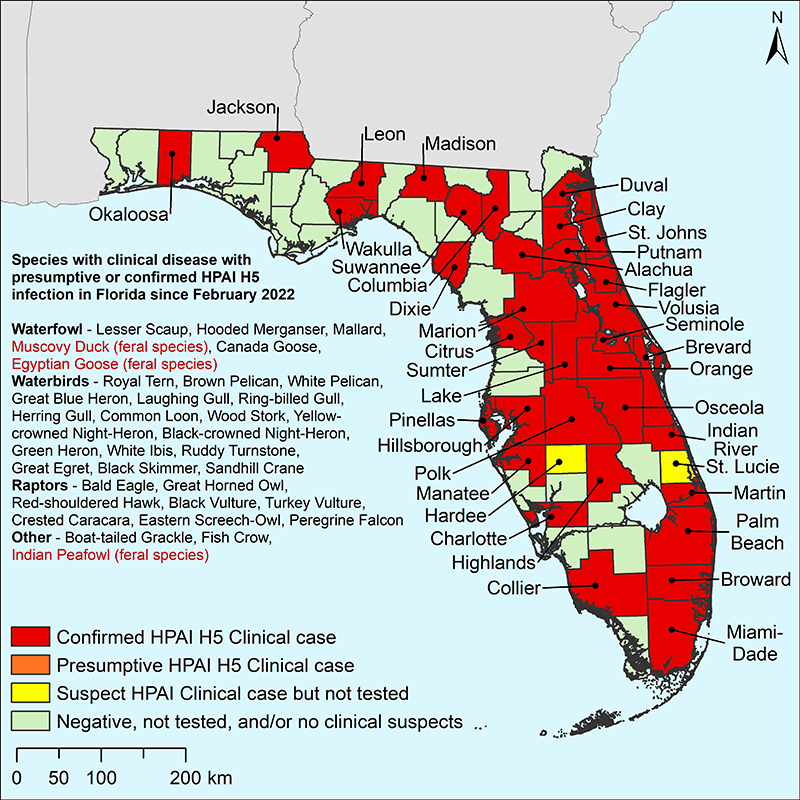 Did you know that we are coming into the flu season for birds as well as ourselves? Have you heard of Highly Pathogenic Avian Influenza (HPAI)? HPAI becomes much more active and transmissive during the cooler months of the year. It’s been in the news over the past several years, as there have been outbreaks in our native bird populations in North America. Since January 2022, HPAI H5 has been confirmed in 35 counties in Florida. Audubon reported on it recently in the fall 2023 edition of Audubon Magazine. Did you know that we are coming into the flu season for birds as well as ourselves? Have you heard of Highly Pathogenic Avian Influenza (HPAI)? HPAI becomes much more active and transmissive during the cooler months of the year. It’s been in the news over the past several years, as there have been outbreaks in our native bird populations in North America. Since January 2022, HPAI H5 has been confirmed in 35 counties in Florida. Audubon reported on it recently in the fall 2023 edition of Audubon Magazine.
Several takeaways from reading the above resources, as a birder or backyard bird feeder:
- Watch for birds with signs of HPAI while out birding and report to FWC if you find visibly sick or dead birds, especially waterfowl, waterbirds, raptors and others such as crows, grackles and feral domestic birds.
- Clean backyard bird feeders regularly (every 1-2 weeks is best) with a mild bleach solution to prevent spreading this disease to your beloved backyard birds.
- Don’t put feeders out that attract birds to congregate in close proximity to potentially infected waterfowl/waterbird populations, such as near ponds and lakes.
- Wear rubber gloves when handling sick, injured, or dead birds.
As someone who cares about birds, please take the time to educate yourself about this concerning avian disease, and take precautions to avoid spreading it!
UPCOMING ACTIVITIES
Here's what's happening this month:
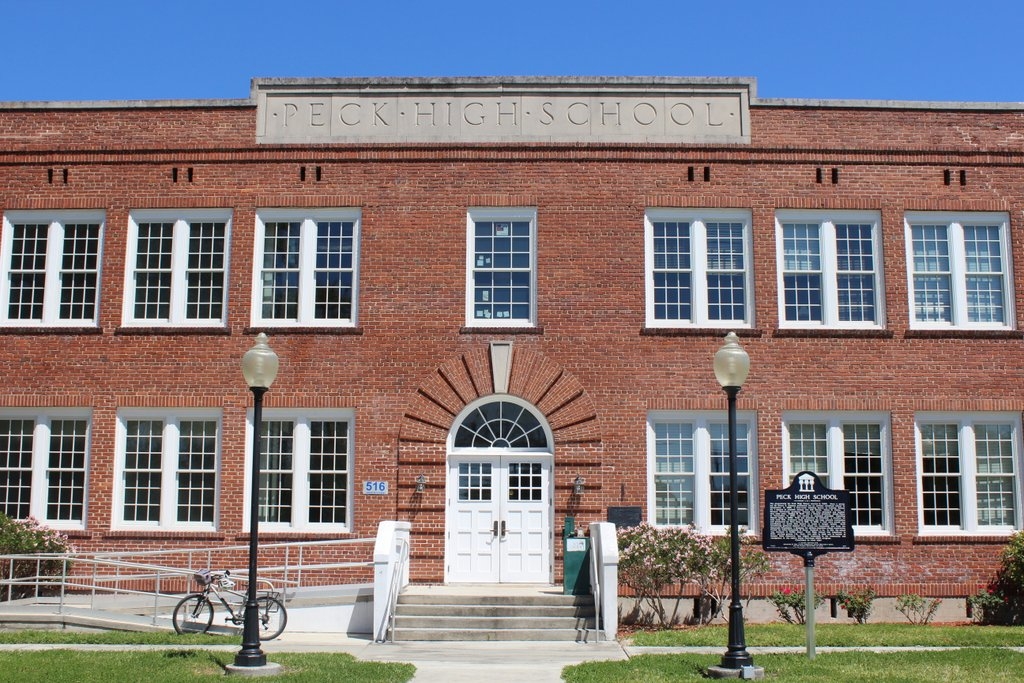 The Best of Us: Photo Sharing and Pot Luck Bruncheon @ The Peck Center (Fernandina Beach): 10 am - 12:30 pm, Saturday, December 2, 2023 (more info here) The Best of Us: Photo Sharing and Pot Luck Bruncheon @ The Peck Center (Fernandina Beach): 10 am - 12:30 pm, Saturday, December 2, 2023 (more info here)- Bird Walk for Beginners @ Fort Caroline National Memorial: 10 am - noon, Sunday, December 3, 2023 (register here)
- St. Augustine CBC: Sunday, December 17, 2023 (contact Bill McNee)
- Clay County East CBC: Saturday, December 23, 2023 (contact Steve Raduns)
- Duval County CBC: Saturday, December 30, 2023 (contact Anne Turner, Jessica Dyszel, and Pete Johnson)
Hope to see you soon!
Duval Audubon Society, Inc.
P.O. Box 16304
Jacksonville, FL 32245
www.duvalaudubon.org
    
|
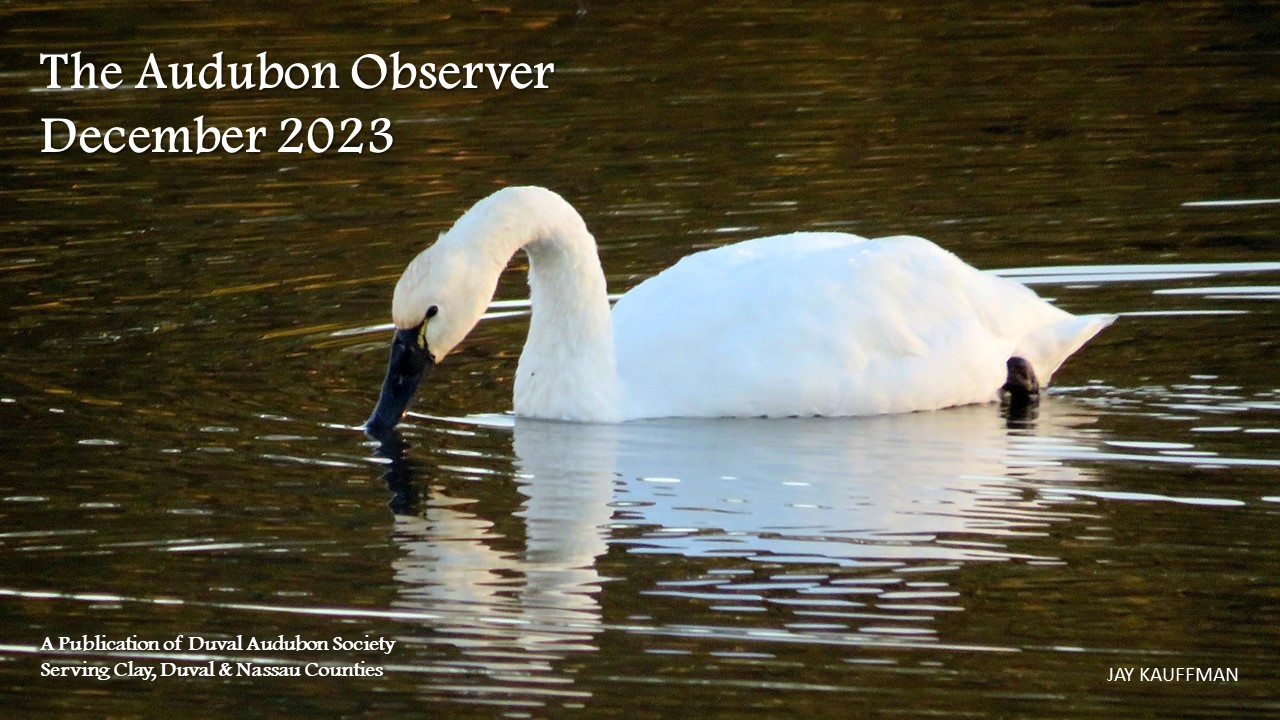
 This year’s Duval County
This year’s Duval County  In later years, we’ve moved away from having a gathering to tally the count at the end of the day. The practicality and logistics of this approach seem a bit much in the age of electronic communication and
In later years, we’ve moved away from having a gathering to tally the count at the end of the day. The practicality and logistics of this approach seem a bit much in the age of electronic communication and 
 LONF is incredibly grateful to the 36 volunteers who donated more than 375 hours of their time to monitor bird strikes in downtown Jacksonville
LONF is incredibly grateful to the 36 volunteers who donated more than 375 hours of their time to monitor bird strikes in downtown Jacksonville And of course, it’s not just the downtown area that presents a danger to migrating birds. Any reflective window, whether on a tall building or a private home, can be a death sentence for a bird. Birds cannot see glass, and often smack right into the reflection of the sky, thinking it’s the sky itself. We MUST do more to protect birds from these dangers. That’s why Lights Out Northeast Florida encourages everyone, businesses and homeowners alike, to take steps to prevent these tragic accidents. Here’s what you can do to make your home or business safer for migrating birds:
And of course, it’s not just the downtown area that presents a danger to migrating birds. Any reflective window, whether on a tall building or a private home, can be a death sentence for a bird. Birds cannot see glass, and often smack right into the reflection of the sky, thinking it’s the sky itself. We MUST do more to protect birds from these dangers. That’s why Lights Out Northeast Florida encourages everyone, businesses and homeowners alike, to take steps to prevent these tragic accidents. Here’s what you can do to make your home or business safer for migrating birds: October and November were great months at our
October and November were great months at our  Did you know that we are coming into the flu season for birds as well as ourselves? Have you heard of
Did you know that we are coming into the flu season for birds as well as ourselves? Have you heard of  The Best of Us: Photo Sharing and Pot Luck Bruncheon @ The Peck Center (Fernandina Beach)
The Best of Us: Photo Sharing and Pot Luck Bruncheon @ The Peck Center (Fernandina Beach)